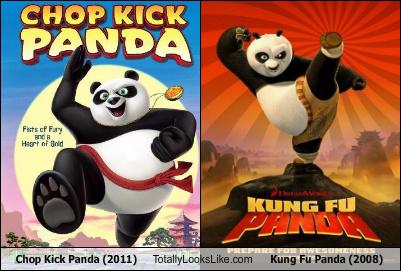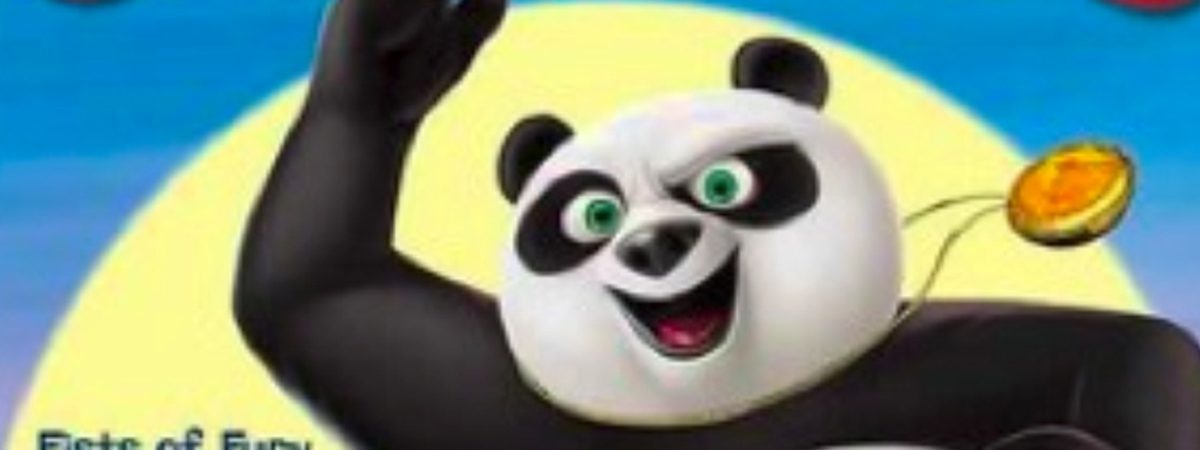Recognise this chap? He’s a fun, lovable but overweight panda from a recent film, who just happens to uncover ‘fists of fury’ in his quest to become a true martial arts master. His name, of course, is Po… Lu. And he’s from the Dreamworks Gaiam Media film Kung Fu Panda Chop Kick Panda.
Confused? Well, in one of the most blatant film rip offs of our generation, this company has created a character so similar both in design and personality to Dreamworks’ Kung Fu Panda that the only difference appears to be that one doesn’t wear pants.

We stumbled across this DVD in our local Sainsburys, where it sat, awaiting innocent but somewhat rushed parents trying to earn some brownie points with the kids.
Goodtime media have made several of these imitation films, the most notable one being their version of the Little Mermaid, which had video stores across the world tearing out their hair for all the irate parents who brought the wrong one. But the main difference this time is that Little Mermaid, Aladdin and all their other knockoff’s were at least stories that already existed in the public domain; they’re legends or fairy stories that have been around for generations. Kung Fu Panda is an original story, created by Dreamworks, and I doubt they’re flattered by this imitation.
I don’t know if it’s better or worse that the actual film isn’t CGI at all like the cover makes it look. I haven’t actually seen the film in whole, having decided to keep my £3 for sweeties instead (although apparently it contains a farting monkey, and what’s not to love about that), but this clip from YouTube shows that it’s actually more like a Cartoon Network film in style.
So my question is, how on earth did they get away with this? Dreamworks are a major corporatation with more than one lawyer working for them. Disney have threatened to sue nurseries for using their characters on the walls (in fairness to them, they have to sue in order to keep trademarks in tact). So why have Dreamworks allowed us to come across this in Sainsburys? And why are the official creators of their products still paying them a license fee when clearly they’re happy to have their intellectual copyright taken from them.


